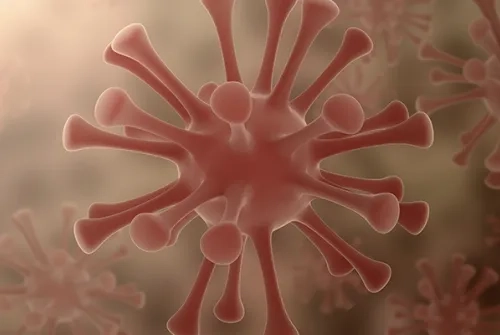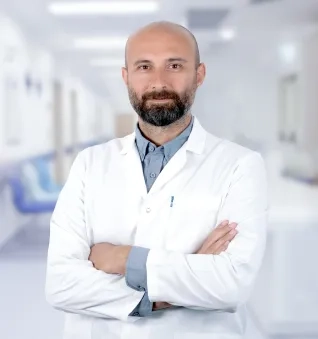Alo Yeditepe
Alo Yeditepe
False Facts in Cancer
"A Knife to Cancer or a Biopsy Causes the Cancer to Spread to the Body"
FALSE. Correct surgery and biopsy do not cause cancer to spread or grow. The only way a person can be diagnosed with cancer is with a biopsy.
"Sugar Nourishes Cancer Should Remove Sugar Completely in the Diet"
FALSE. All the cells in our body, including cancer cells, use sugar for energy. Although cancer cells consume more sugar than normal cells, no studies have shown that eating sugar makes cancer worse or that not eating sugar shrinks or destroys cancer. This should not mean that it is appropriate to eat a diet high in sugar. A diet that contains excess sugar can lead to obesity by causing excessive weight gain, and obesity is known to increase the risk of developing some types of cancer. Foods containing sugar, which are consumed in reasonable amounts and do not cause weight gain, do not increase the risk of cancer. Some patients who try to eat an over-controlled diet and do not consume many foods with the idea that they are carcinogenic cannot continue their treatment due to nutritional deficiency and decreased resistance.
"Sweeteners Cause Cancer"
FALSE. In none of the studies conducted with sweeteners have sweeteners been found to cause cancer in humans.
"Cancer Patient Attitude (Morale) to Cancer Affects Recovery from Cancer"
FALSE. No scientific data to date have shown that a person's attitude towards cancer changes the likelihood of cancer development or cancer-related death. It is normal to feel sad, angry, sometimes tired, or overly optimistic after being diagnosed with cancer. Patients with higher morale do not distance themselves from social relationships, remain more active and have a better quality of life. Patients with positive attitudes towards the disease have better treatment processes. However, being depressed does not indicate that cancer treatment will be more ineffective and does not affect the success of cancer treatment. Over-emphasizing the patient's attitude (morale) towards cancer may cause the patient to feel unnecessarily guilty if the treatment does not give good results.
"Herbal Therapies Being Sold as Alternative or Supportive Treatments to Cure Cancer"
FALSE. Although some herbal medicines sold as alternative or supportive treatments may be useful in some side effects related to chemotherapy or radiotherapy, there is no scientific data to suggest that these drugs treat cancer. Herbal medicines, which have already been found to be effective in the treatment of cancer, are now becoming the standard of care and are not called alternative or supportive therapies. It should be noted that some of the chemotherapy drugs are also obtained from plants. Patients who want to use herbal products or vitamins should definitely talk to their physicians because these products can reduce the effect of chemotherapy and radiotherapy on cancer cells.
"Acidic Diets Cause Cancer, So the Body Should Be Made Alkaline with Alkaline Foods and Sodium Bicarbonate."
FALSE. Our body's acid-alkaline balance is very well-managed. Otherwise, it would be incompatible with life. A person with normally functioning lungs and kidneys can't make their body alkaline with what they eat. If the excess alkaline diet is taken, this is excreted in the urine and the urine becomes alkaline. Even if an overly acidic diet is taken, urine becomes acidic because it will be excreted from urine. In this way, the acid and alkaline balance of the body is maintained. Indeed, the tumor cannot live in an alkaline environment, but this also applies to all the cells in our body. Sodium bicarbonate should not be drunk to make the body alkaline.
"Cancer Treatments Kill More Than Cancer"
FALSE. It is a fact that cancer treatments (chemotherapy, radiotherapy, and surgery) have uncomfortable side effects. However, as stated on some websites, the information "cancer treatment is effective only in 3% of patients" is incorrect. The number of patients benefiting from cancer treatment is increasing day by day in light of new developments.
This content was prepared by Yeditepe University Hospitals Medical Editorial Board.
”
See Also
- How Should Patients Receiving Chemotherapy Eat?
- What is Chemotherapy? How is it Applied?
- Is Cancer a Treatable Disease?
- Nutrition in Cancer
- Cancer Treatment Methods
- Treatments that Reduce Life Loss in Cancer Give Hope!
- Do Individualized Treatments Offer Hope for Cancer?
- The Hope of ‘Immunotherapy’ in Advanced-Stage Cancer Treatment
- Cancer Statistics Reveal the Importance of Protecting Against Cancer
- New Research Points to the Important Issues in Breast Cancer
- Found Out That She Had Cancer After Her Accident, and Immunotherapy Was Her Solution!
- Life Support Booklet for Oncology Patients
- Lung Cancer
- Most Common Cancers
- Common Misconceptions About Cancer
- New Treatment Approaches Promising in Metastatic Breast Cancer
Alo Yeditepe




